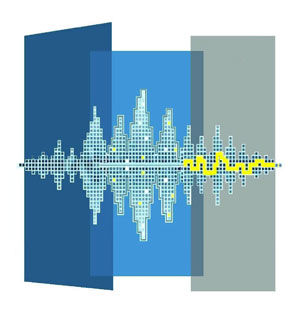Sunday 15th October – mattina
Music from music therapeutic and neuroscientific perspectives
Jos De Backer
Prof. Dr. Head of the Master and Bachelor Training course LUCA, School of Arts, Head of Music Therapy University Psychiatric Centre KU Leuven.
Prima la musica e poi le parole
Clinical improvisation is the ‘leitmotiv’ of this presentation. Video illustrations of musical improvisations will be approached from three main perspectives: silence, sound and rêverie. Which modalities of silence do we meet in clinical improvisations? How can we be attentive for transformations in clinical improvisations? What is the value of the listening attitude of the music therapist in clinical improvisations? This presentation aims to enrich the knowledge of the clinician, and will challenge the clinician to approach the clinical material on a primarily musical way.
Katrien Foubert
Associate professor music therapy in LUCA School of Arts, association KU Leuven; Music therapist in University Psychiatric Hospital UPC KU Leuven (Belgium).
Interpersonal synchronization, a cornerstone of change in music therapy?
Problems in interpersonal functioning has always been a prominent characteristic of Borderline Personality Disorder (BPD), indicating a need for research to identify the specific interpersonal processes that are problematic for individuals diagnosed with BPD. We propose the social attunement of actions between individuals, and interpersonal synchronization (IPS) in particular, as being essential for problems in social interactions. IPS is the dynamical process of individuals being mutually responsive in their actions. In Europe, musical joint improvisation is a central method in music therapy in the treatment of patients with personality disorder. In music therapy, synchronization processes between self and the other within improvisations is on the fore. In this presentation, the outcome of a case-control study of musical joint improvisations with BPD patients will be presented. This study shows the importance of interpersonal synchronization processes to social functioning in BPD. This may have interesting implications in relation to music-therapeutic embodied strategies to improve impairments in interpersonal synchronization. These results will be illustrated with clinical videofragments and clinical vignettes.
Lecture-concert by Stefan Koelsch
How does music evoke emotions in the brain?
Everybody knows the experience that music evokes emotions. But “how” does music evoke emotions in us? Are music-evoked emotions “real”, and do they involve brain structures that are crucially involved in “real”emotions? How might the power of musical emotions be related to therapeutic power of music? This lecture-concert will deal with these questions and present latest findings from music psychology and the
neuroscience of music in a way that they can also be understood by non-experts. The lecture-concert will also guide through the principles underlying the evocation of emotions with music, and illustrate these principles with live examples from the G-major sonata for piano and violin by Johannes Brahms. Following the talk, the entire sonata will be performed. Thus, we will try to combine science and art in a unique way and provide the audience with a lecture-concert after which they will hear music differently.
Johannes Brahms – Violin Sonata op. 78 n.1 in G Major
Violin: Stefan Koelsch; Piano: Ruta Standalnykaite


